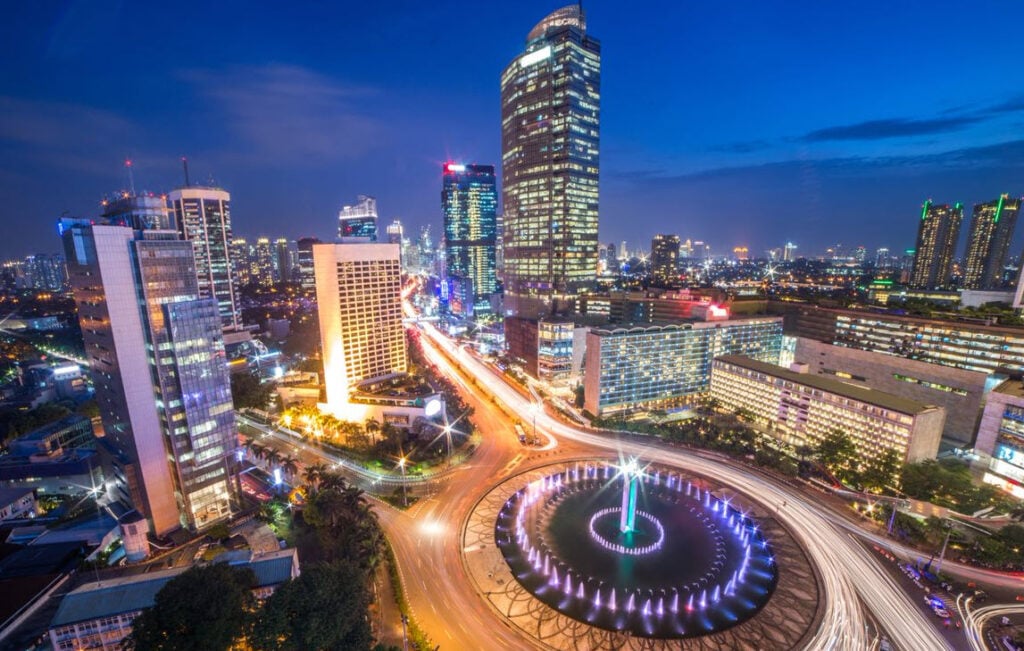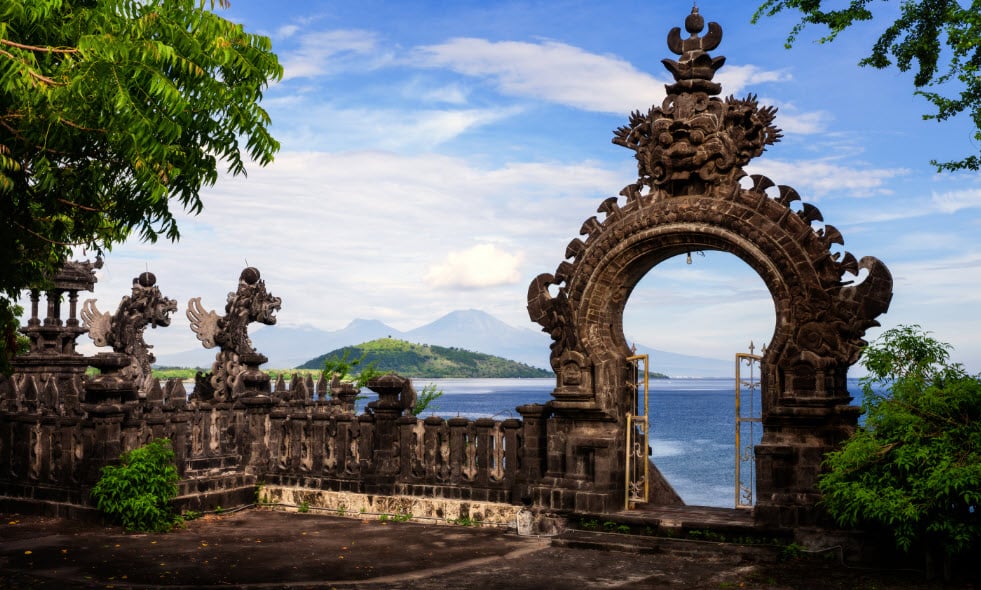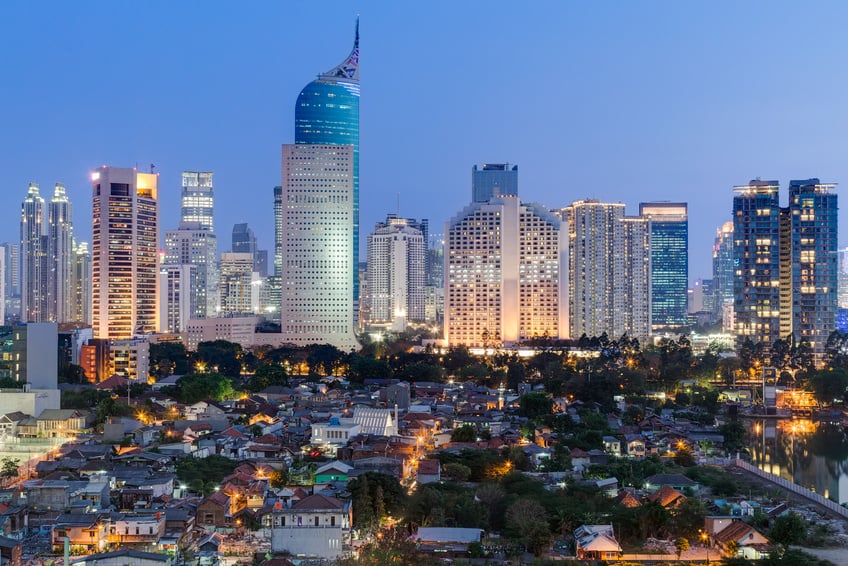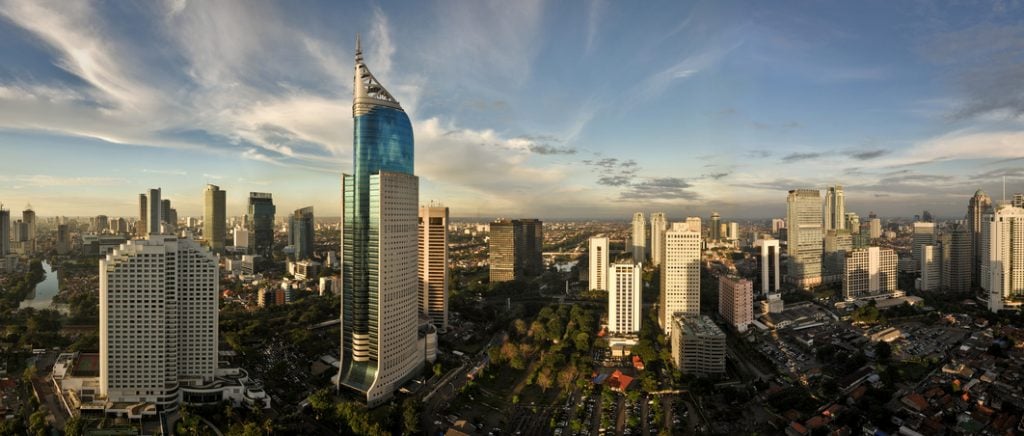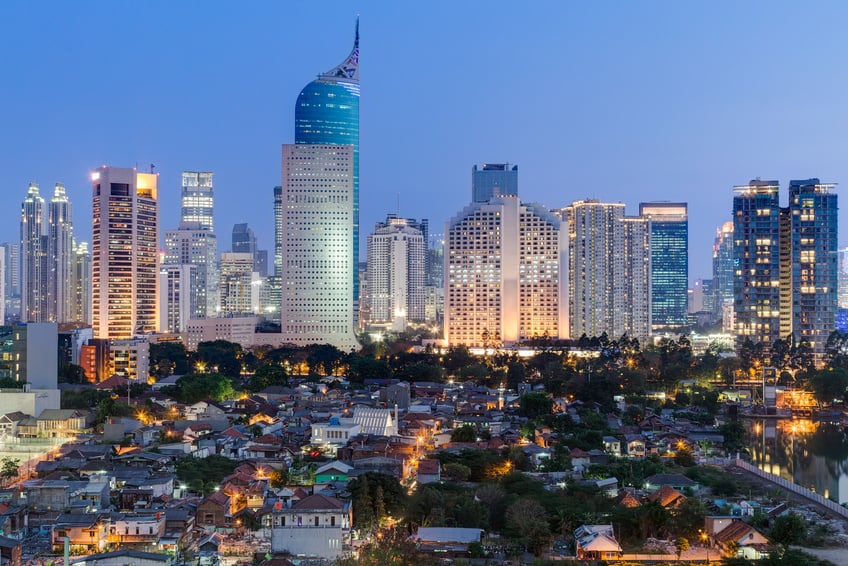Indonesia: KPPU online merger filing portal introduces a new feature – dual nexus assessment
In the latest update of the Indonesian Competition Commission (Komisi Pengawas Persaingan Usaha, “KPPU”) online filing portal, a dual (double) nexus assessment Q&A is now required to be filled in by companies that submit a merger control notification. Although the KPPU has not issued any update to their merger filing guideline, this new questionnaire confirms how the KPPU assesses the dual nexus requirement for offshore transactions.
Indonesia: KPPU hits the ground running with 100 day action plan
The new year began with the inauguration of the nine elected commissioners of the Indonesian Competition Commission (Komisi Pengawas Persaingan Usaha, KPPU). The newly inaugurated KPPU leadership hit the ground running with various engagements and announced a refined industry focus in their 100 day action plan.
Indonesia: Breaking down the second amendment to the EIT Law – new provisions on electronic certificate providers, prohibited contents and mandatory use of Indonesian law
On 2 January 2024, the President of the Republic of Indonesia signed Law No. 1 of 2024 on the Second Amendment to Law No. 11 of 2008 on Electronic Information and Transactions (“EIT Law”) (“Amendment Law”). The Amendment Law was enacted and became effective on the same day. The Amendment Law covers some new provisions that seem to push for localization and domestic protection, such as the requirement for e-certification service providers to be domiciled in Indonesia and the requirement for international electronic contracts to be governed by Indonesian Law. The Amendment Law also elaborates on the prohibited acts under the EIT Law, and contains new provisions on government intervention.
Indonesia: New E-Commerce Regulation
The Ministry of Trade has published Regulation No. 31 of 2023 on Provisions on Business Licensing, Advertisement, Development and Supervision of Business Actors in Electronic Systems Trading (“Regulation 31”), which came into force on 26 September and revoked Minister of Trade Regulation No. 50 of 2020 on the same subject matter. This alert highlights that Regulation 31 now identifies social-commerce platforms (i.e., those platforms that feature social media functionalities) within the sphere of e-commerce operators’ business models. Regulation 31 introduces significant new restrictions on the activities of foreign merchants and e-commerce operators.
Indonesia: OJK’s New Regulation on Investigation of Crimes in Financial Services Sector
Law Number 4 of 2023 on the Development and Strengthening of the Financial Sector has placed OJK in a more central position to investigate crimes in the financial services sector. As an implementing rule, OJK has issued Regulation Number 16 of 2023 on Investigation of Crimes in the Financial Services Sector which covers, among other things, the general scope of crimes in financial services sector, members of authorized teams of investigators, the investigative authorities and powers, and available alternative settlement mechanics.
Indonesia: Customs targets examination of companies that utilize under-name import
On behalf importation, locally known as “under-name importation” or “QQ” importation, has been used by companies for more than a decade, ever since the Directorate General of Customs and Excise first allowed the name of the owner of goods to be included in the import declaration form (PIB). Under Indonesia’s Customs Law, the importer of record is the party that is subject to an audit or a re-examination (Penelitian Ulang), and there is no audit or re-examination of the owner of goods in a PIB using under-name importation. However, in mid-August this year, the Minister of Finance issued Regulation No. 78 of 2023 on Re-examination in the Field of Customs, which will come into force on 21 October this year. One of the objects of re-examination is the owner of goods
Indonesia: Health Omnibus Law series – Key updates on pharmaceutical preparation and medical device provisions
On 11 July 2023, Indonesia’s house of representative (known as Dewan Perwakilan Rakyat Indonesia/DPR RI) approved the 2023 draft health law. A month later, the President enacted Law No. 17 of 2023 on Health (“Health Omnibus Law”) through the state secretariat. The Health Omnibus Law contains provisions on matters such as pharmaceutical preparations, medical devices, healthcare services, healthcare technology (including telehealth and telemedicine), R&D and other compulsory measures.
Indonesia: New OJK Rule on carbon trading on carbon exchange
On 2 August 2023, the Financial Services Authority or Otoritas Jasa Keuangan (OJK) issued its Rule No. 14 of 2023 on Carbon Trading on Carbon Exchange (“OJK Rule 14/2023”). OJK Rule 14/2023 is issued as one of the implementing regulations of Law No. 4/2023 on Development and Strengthening of the Financial Sector.
OJK Rule 14/2023 sets out the standard criteria for carbon units that will be traded on a carbon exchange, as well as the licensing requirements for any company that will apply to become a carbon exchange.
Indonesia: Foreign-flagged cruises and yachts to sail in Indonesian waters
Minister of Transportation Regulation No. 14 of 2023 on Amendment to Minister of Transportation Regulation No. 4 of 2022 on Services for Foreign-flagged Yachts and Cruise Ships, which came into effect on 23 May this year, expands the ports that are available for foreign-flagged cruise ships and yachts to enter and exit Indonesian waters.
Indonesia: Exporters of natural resources must park 30% of their Export Proceeds
To create stability in the macroeconomy and the domestic financial market, the government of Indonesia has issued several regulations in relation to natural resource export proceeds.
Indonesia: KPPU may change its approach in assessing penalties for late merger filings
On 28 July 2023, speaking at a seminar at KPPU’s head office, the competition authority’s Director of Mergers and Acquisitions indicated that KPPU may consider applying a new method for calculating administrative fines taking into account the sanctioning provisions under the Government Regulation No. 44 of 2021. This would enable KPPU to impose fines of more than the nominal limit of IDR 25 billion set under the Government Regulation No. 57 of 2010, increasing the legal risks for failing to file merger notices on time.
Indonesia: KPPU sets out tests for change of control in M&A deals
Following its launch in April 2023, the online notification form introduced by KPPU sets out a new set of tests for determining whether, and to what extent, a change of control has occurred in a non-majority acquisition. We summarize these tests to help you understand how KPPU will view and assess change of control in non-majority acquisitions.
Indonesia: OJK regulation on insurance sharia spin-off finally issued
On 11 July this year, the Indonesian Financial Services Authority (OJK) issued the long awaited OJK Regulation No. 11 of 2023 on Spin-off of Sharia Units of Insurance Companies and Reinsurance Companies, which replaces the provisions on sharia unit spin-off of insurance and reinsurance companies in OJK Regulation No. 67/POJK.05/2016 on Licensing and Institution of Insurance Companies, Sharia Insurance Companies, Reinsurance Companies and Sharia Reinsurance Companies.
Indonesia: KPPU maps out indications of rigged bids
KPPU (the Indonesian Competition Commission) continues its enforcement against rigged bids, although bid-rigging investigations no longer dominate its caseloads. Initial indications of rigged bids have been confirmed by the issuance of KPPU Chairman Regulation No. 3 of 2023 on Guidelines on Tender Conspiracy Prohibition.
Indonesia: KPPU bids to influence policy-making
Aiming to prevent anti-competitive policies being issued by various governmental institutions, on 31 March 2023 KPPU – the Indonesian Competition Commission, issued KPPU Regulation No. 4 of 2023 on the Provision of Inputs and Suggestions for Government Policies in relation to Monopolistic and/or Unfair Business Practices. In the past, various governmental policies, particularly on imports, quotas and commodities, have caused market distortion and resulted in KPPU issuing orders against other governmental institutions. Members of the public, including business entities, are welcome to provide input to KPPU if they become aware of a potentially anti-competitive governmental policy.
Global: Reforming the Workforce in Uncertain Times [Webinar Series]
Baker McKenzie is proud to launch a series of webinars aimed at helping employers understand current employment trends and issues in the South East Asia region. Some of the topics discussed are Alternatives to the Traditional Employment Model, and complexities of Workforce Optimization.
Indonesia: Clarification of certain provisions of the PDP Law by the Constitutional Court
In April 2023, in two separate judgments, the Constitutional Court clarified the interpretation of some provisions in Law No. 27 of 2022 on Personal Data Protection, i.e., provisions on personal or household processing of personal data and on the limitations of a data subject’s rights in relation to national security and defense.
Indonesia: KPPU provides more clarity on negative impact of anti-competitive behavior
After more than 20 years enforcing the Anti-Monopoly Law (Law No. 5 of 1999 on the Prohibition of Monopolistic and Unfair Business Practices), KPPU – the Indonesian Competition Commission – having experienced the highs and lows of investigating a wide range of anticompetitive behavior, issued KPPU Chairman Regulation No. 2 of 2023 on Guidelines for Assessing Negative Impact from Monopolistic and Unfair Business Practices.
Indonesia and Japan: Indonesia introduces CCS/CCUS Regulation
On 3 March 2023, the Indonesian Ministry of Energy and Mineral Resources enacted the Regulation on the Implementation of CCS (Carbon Capture and Storage) and CCUS (Carbon Capture, Utilization and Storage) in Upstream Oil and Gas Business Activities (MEMR2/2023). The Regulation covers a wide range of matters, including planning of CCS and CCUS projects, implementation, monitoring, CO2 measurement, reporting and verification, financing and monetization and closure of CCS and CCUS projects.
Indonesia: Customs – Voluntary declaration and voluntary payment mechanism
As a general rule on customs valuation, there are certain types of costs that should be added to the customs value. But sometimes the costs cannot be determined at the time of import (or at the time of import declaration). Thus, in 2016 the Indonesian Minister of Finance (MOF) issued MOF Regulation No. 67/PMK.04/2016 on Voluntary Declaration of Customs Value for Import Duty Calculation (“MOF Regulation 67”), which introduced ways to declare and pay those costs in the form of a voluntary declaration and voluntary payment mechanism. To provide legal certainty and improve compliance in relation to the mechanism of voluntary declaration and voluntary payment of customs value, the MOF issued a new regulation on voluntary declaration and voluntary payment, i.e., MOF Regulation No. 201/PMK.04/2020 (“MOF Regulation 201”), which came into force on 16 February 2021, and revoked MOF Regulation 67.
